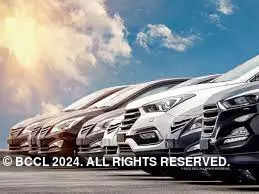
German car sales rose in October, official data showed Thursday, but analysts were still pessimistic as soaring prices and recession fears clouded the outlook.
Around 208,000 new cars were registered last month, the KBA federal transport authority said in a statement — a 16.8-percent increase from a year earlier.
But the jump mainly reflected last year’s “record low” in October, when manufacturers were blighted by acute supply chain issue, the VDIK car importers’ federation president Reinhard Zirpel said.
October’s figures were still “the second weakest” on record and “well below the long term average”, Zirpel said.
Carmakers’ sales were boosted by big order backlogs, which they were slowly working through as supply issues eased, he said.
Auto manufacturers have for months had to deal with supply issues, with shortages of key components leading to intermittent production stops and a slump in sales.
But lower demand from consumers amid a weakening economy could “soon cause the market as many problems as strained supply chains”, Zirpel said.
Analysts see Germany drifting towards recession, as soaring prices for energy in the wake of the Russian invasion of Ukraine weigh on industry and consumers.
Auto manufacturers were facing up to a “further difficult year ahead”, EY analyst Peter Fuss said.
Meanwhile, sales of electric cars continued to outperform the market as a whole. Sales of battery-powered cars rose 17.1 percent, while those of plug-in hybrids were up 35 percent.
Read More:
